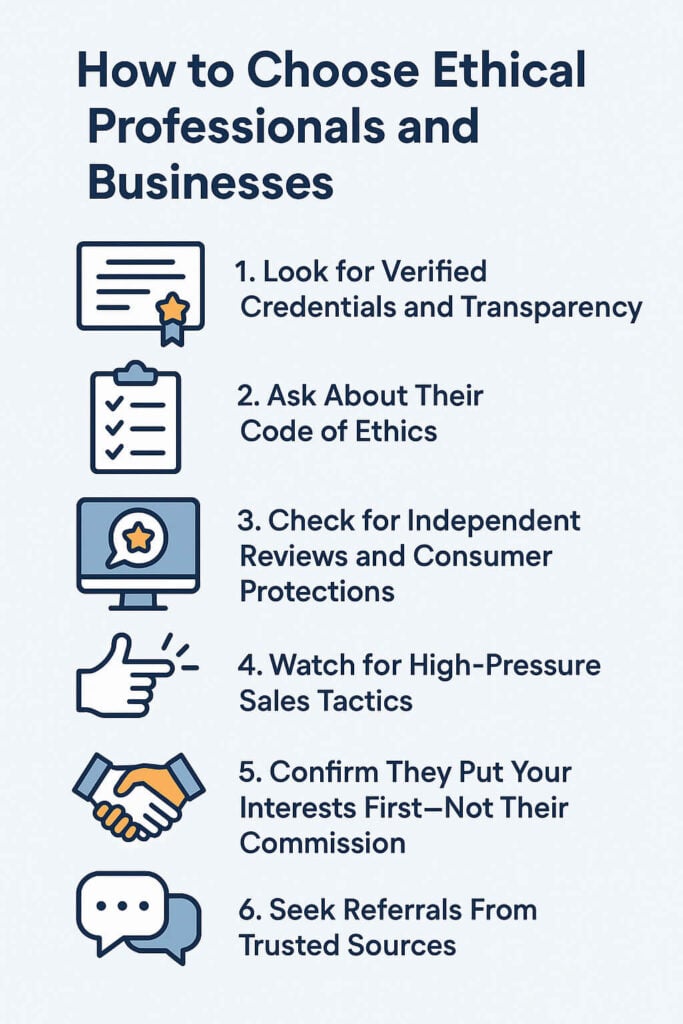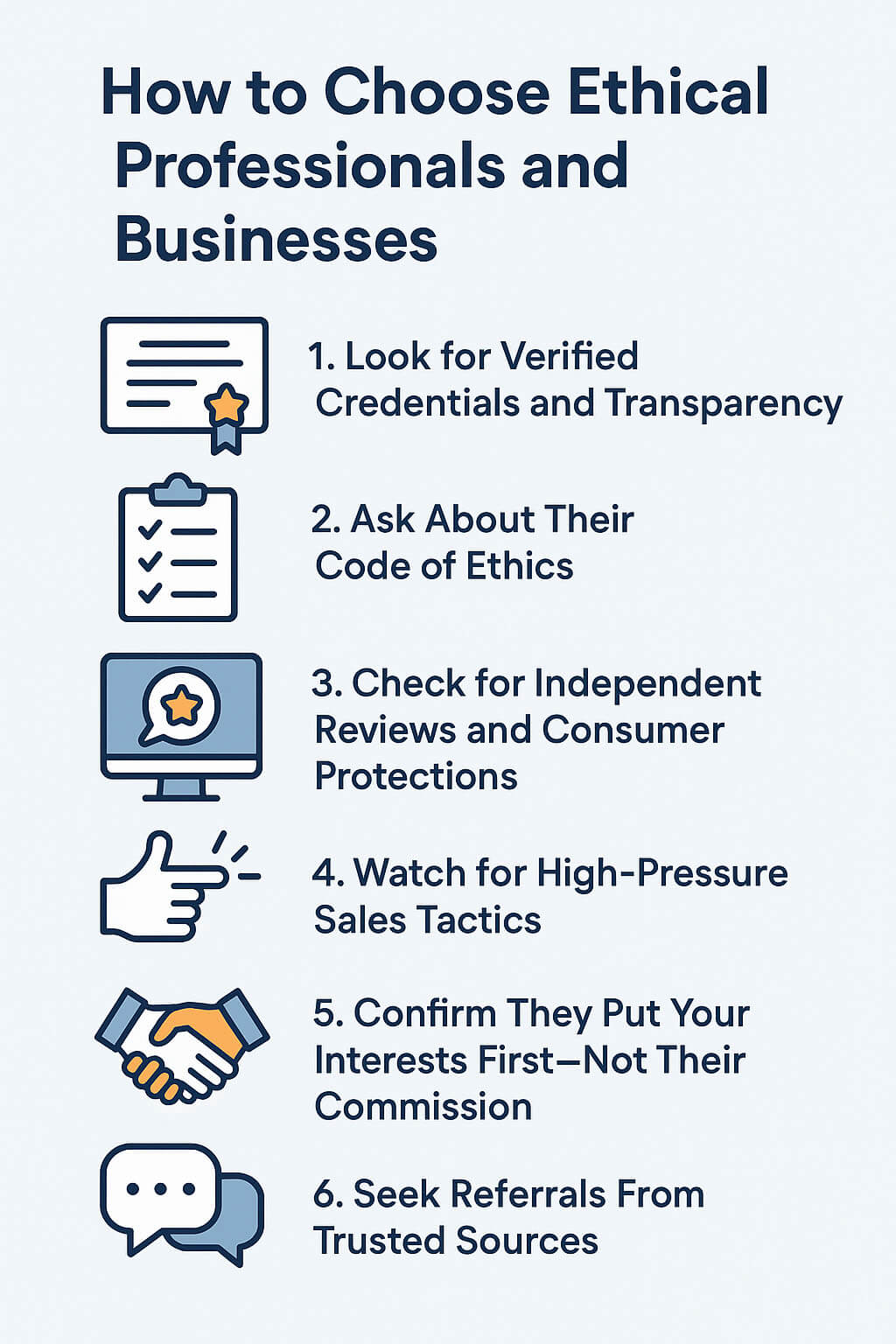
In today’s complicated marketplace, choosing the right professional or business is more than just a matter of convenience—it’s about trust, safety, and financial security. With scams on the rise and unethical practices becoming harder to detect, it’s essential to know how to identify professionals who operate with integrity.
Whether you’re hiring a financial advisor, selecting a contractor, or working with a senior care provider, here’s what you need to look for when choosing an ethical professional or business.
1. Look for Verified Credentials and Transparency
An ethical professional will proudly share their qualifications, licenses, and affiliations. Check that they:
- Are licensed or certified in their field
- Belong to professional organizations that promote ethical standards like NAOSA
- Are transparent about fees, services, and terms
Before hiring, always verify credentials through your state’s licensing board (example: California).
Red Flag: Vague answers about experience, licenses, or costs could signal unethical behavior.
2. Ask About Their Code of Ethics
Truly ethical professionals follow a code of conduct that puts the client first. Ask:
- What standards or code of ethics do you follow?
- How do you avoid conflicts of interest in your work?
A professional who prioritizes ethical service will be able to articulate their principles clearly and confidently. NAOSA members commit to a strict Gold Standard of Professional Practice, which protects consumers from commission-driven recommendations and unethical behavior.
3. Check for Independent Reviews and Consumer Protections
Research online reviews, but go beyond just star ratings. Look for:
- Verified testimonials
- Independent reviews on sites like the Better Business Bureau (BBB)
- Any past complaints or disciplinary actions through relevant regulatory agencies
These third-party resources offer transparency that unethical providers can’t hide from.
4. Watch for High-Pressure Sales Tactics
Ethical professionals never rush or pressure you into making a decision. Be cautious if someone:
- Pushes you to “act now” or “sign today”
- Avoids giving you time to review documents
- Uses scare tactics or emotional manipulation
Take your time. Ethical professionals will respect your need to review, ask questions, or even walk away. If you’re unsure, resources like the Consumer Financial Protection Bureau (CFPB) offer consumer tools to evaluate financial offers.
5. Confirm They Put Your Interests First—Not Their Commission
Unethical professionals may steer you toward products or services that benefit them more than you. Ask directly:
- Do you receive any financial incentive for recommending this?
- What other options are available that might cost less or suit my needs better?
- Do you work under the Fiduciary Standard? Especially relevant with financial professionals.
NAOSA’s ethical standards ensure our members avoid commission-driven advice and always prioritize the consumer’s best interest.
6. Seek Referrals From Trusted Sources
Ask for referrals from people you trust: friends, family, or reputable senior organizations. You can also find a vetted professional through NAOSA’s national network—each member is screened and held accountable through our strict ethical review process.
Government-supported services like the Eldercare Locator or nonprofit groups like the National Council on Aging can also help guide your decision.
7. Stay Informed About Scams and Unethical Practices
Stay updated on emerging scams through reliable government sources like the FTC’s Consumer Advice website. Knowledge is power, especially when it comes to protecting your finances and personal information.
NAOSA also publishes scam alerts and consumer news to help protect older adults and all consumers from unethical practices.
Final Thoughts
In a world where unethical practices can easily be disguised, choosing the right professional is about more than good service—it’s about your peace of mind. Ask the right questions, do your research, and seek out those who have proven they are committed to doing the right thing.
Remember: Trust is earned, not assumed. Choose professionals who have earned it—like those vetted by NAOSA.



